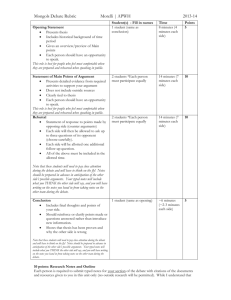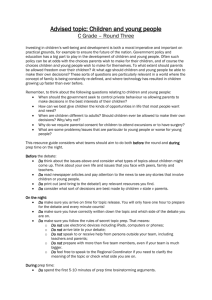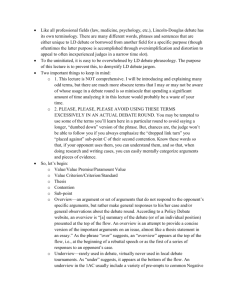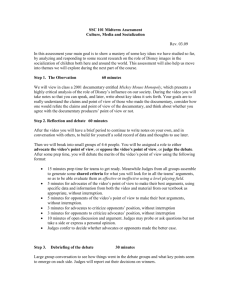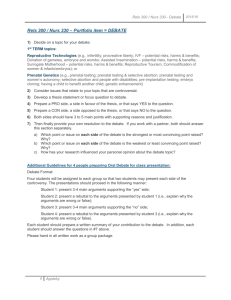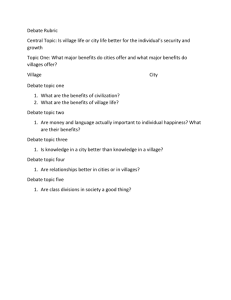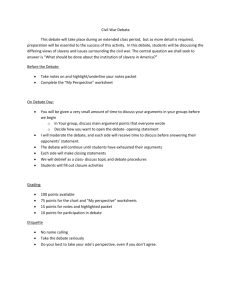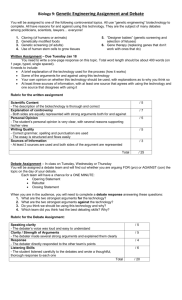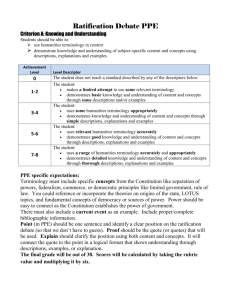Grade 9 World War One Debate Assessment Germany was
advertisement
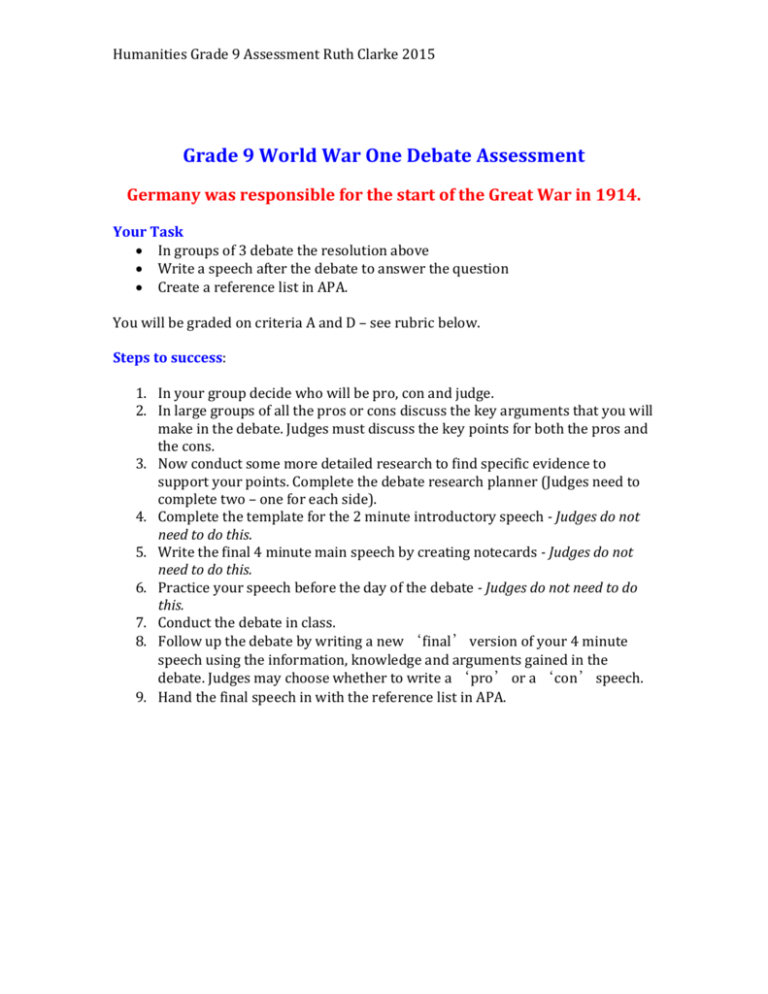
Humanities Grade 9 Assessment Ruth Clarke 2015 Grade 9 World War One Debate Assessment Germany was responsible for the start of the Great War in 1914. Your Task In groups of 3 debate the resolution above Write a speech after the debate to answer the question Create a reference list in APA. You will be graded on criteria A and D – see rubric below. Steps to success: 1. In your group decide who will be pro, con and judge. 2. In large groups of all the pros or cons discuss the key arguments that you will make in the debate. Judges must discuss the key points for both the pros and the cons. 3. Now conduct some more detailed research to find specific evidence to support your points. Complete the debate research planner (Judges need to complete two – one for each side). 4. Complete the template for the 2 minute introductory speech - Judges do not need to do this. 5. Write the final 4 minute main speech by creating notecards - Judges do not need to do this. 6. Practice your speech before the day of the debate - Judges do not need to do this. 7. Conduct the debate in class. 8. Follow up the debate by writing a new ‘final’ version of your 4 minute speech using the information, knowledge and arguments gained in the debate. Judges may choose whether to write a ‘pro’ or a ‘con’ speech. 9. Hand the final speech in with the reference list in APA. Humanities Grade 9 Assessment Ruth Clarke 2015 0 Criterion A Knowledge and Understanding The student does not reach a standard described by any of the descriptors below. 12 The student: 34 The student: 56 The student: ii. demonstrates basic knowledge and understanding of content and concepts with minimal descriptions and/or examples. ii. demonstrates adequate knowledge and understanding of content and concepts through satisfactory descriptions, explanations and examples. ii. demonstrates substantial knowledge and understanding of content and concepts through accurate descriptions, explanations and examples. Criterion D Critical Thinking The student does not reach a standard described by any of the descriptors below. Basic knowledge of the causes of the first world war is shown. Long term and short term causes are described with limited connections. Few accurate examples are used to support the points made. Factual material is minimal. Adequate knowledge of the causes of the first world war is shown. Long term and short term causes are understood and in some cases connected together. Some accurate examples are used to support the points made. Factual material is satisfactory. Substantial knowledge of the causes of the first world war is shown. Long term and short term causes are understood and in most cases connected together. Many accurate examples The student: ii. summarizes information to a limited extent to make arguments The student: ii. summarizes information to make arguments The student: ii. synthesizes information to make valid arguments Humanities Grade 9 Assessment Ruth Clarke 2015 78 The student: ii. demonstrates detailed knowledge and understanding of content and concepts through thorough, accurate descriptions, explanations and examples. are used to support the points made. Factual material is mostly accurate. Detailed knowledge of the causes of the first world war is shown. Long term and short term causes are understood and connected together. A wide range of accurate examples is used to support the points made. Factual material is accurate. The student: ii. synthesizes information to make valid, wellsupported arguments

